Innovation News
Silicon
215
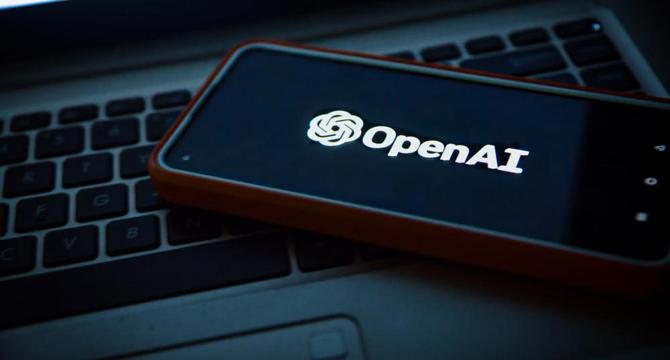
Image Credit: Silicon
OpenAI Appeals User Data Preservation Order In NYT Lawsuit
- OpenAI CEO Sam Altman is appealing an order not to delete any user chats, citing privacy concerns, after The New York Times requested the court for such action, alleging OpenAI's AI models were trained on the publisher's data.
- In response, Altman expressed the company's commitment to fighting any demand that compromises user privacy as a core principle, escalating the need for discussions on 'AI privilege.'
- US District Judge allowed some claims by media organizations against OpenAI to continue, leading to an order for data preservation that OpenAI is appealing against.
- The New York Times signed a content licensing deal with Amazon, whereas various news outlets have sued OpenAI for alleged unauthorized use of their articles in training AI models.
Read Full Article
12 Likes
Medium
4
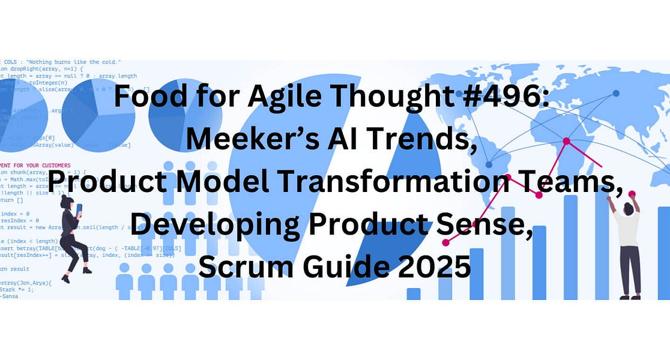
Image Credit: Medium
Food for Agile Thought #496: Meeker’s AI Trends, Product Model Transformation Teams, Developing…
- Mary Meeker discusses AI trends reshaping industries with massive adoption and investment.
- Teresa Torres and Hope Gurion talk about selecting ideal pilot teams for transforming towards a product operating model.
- Itamar Gilad identifies eight core functions of empowered organizations based on Marty Cagan's concept.
- Other topics include training product sense, defending the product triad model, AI role blending, practical acceptance criteria, and Scrum Guide Expansion Pack.
Read Full Article
Like
Silicon
414

Image Credit: Silicon
How Enterprises Can Meet AI Literacy Requirements Before They’re Forced
- Enterprises embracing Generative AI (GenAI) must prioritize AI literacy and governance to unlock its benefits while managing risks of misuse.
- The lack of AI literacy poses significant risks, such as unintentional breaches of sensitive data regulations when experimenting with AI tools like ChatGPT.
- Emphasis on AI literacy is crucial for both government regulations, like the EU AI Act, and responsible use of AI in enterprises.
- The EU AI Act mandates businesses in the EU to ensure staff possess adequate AI literacy to mitigate risks in AI deployment.
- Data literacy is integral to avoiding penalties under regulatory frameworks like the EU AI Act, pushing organizations to enhance AI literacy.
- Developing AI literacy is vital for global enterprises to navigate increasing AI regulation and ensure responsible AI practices.
- Improving AI literacy should be a societal effort, integrating AI education into schools and professional training platforms.
- Data literacy precedes AI literacy, emphasizing the importance of understanding data fundamentals for maximizing AI potential.
- Enterprises should focus on equipping employees with data skills and tools for effective AI system input and reliable outputs.
- Establishing an AI governance program and promoting experiential learning can enhance AI literacy, encouraging responsible AI use.
Read Full Article
24 Likes
Silicon
44
Image Credit: Silicon
The Common Challenges of API Development and How to Overcome Them
- APIs serve as the backbone of modern software development, enabling applications to interact and share data efficiently.
- Challenges in API development include legacy system integration, security vulnerabilities, and complex data manipulation.
- Key challenges include meeting user needs, ensuring security, optimizing performance, handling error responses, and ensuring cross-system compatibility.
- Developing intuitive and functional APIs with clear documentation and regular testing is crucial to meeting user requirements.
- Security measures such as OAuth2 authentication, encryption, and regular auditing are essential to protect APIs from security threats.
- Optimizing API performance involves caching data, efficient database queries, pagination, and scalable infrastructure.
- Effective error handling with standardized status codes and descriptive error messages is vital for user experience.
- API design should focus on flexibility and compatibility with different systems, utilizing widely accepted standards like JSON or XML.
- As technology advances, APIs will continue to play a critical role in driving innovation, improving efficiency, and enabling personalized user experiences.
- Developers need to embrace best practices, address common challenges, and stay updated on evolving regulations to harness the full potential of APIs.
- The future of APIs holds endless opportunities for enabling real-time data-driven applications and facilitating seamless interactions across various platforms.
Read Full Article
2 Likes
Medium
260

Image Credit: Medium
The Double-Edged Click: Why Every Tech Revolution Carries Both Promise and Peril
- Our relationship with technological innovation involves a cognitive dissonance, balancing promise and peril.
- Technological advancements create capability asymmetry, with benefits and risks unfolding over time.
- Emergent social effects of technology interactions are complex and unpredictable.
- Network effects of the internet reveal both positive and negative dynamics at scale.
- Technological systems transform information flow and social coordination.
- AI development introduces challenges regarding agency, decision-making, and accountability.
- Technology assessment needs to shift towards adaptive capacity and ongoing learning processes.
- Democratic involvement in technological decision-making is crucial for societal well-being.
- Technological wisdom requires collective deliberation beyond market forces.
- Technological humility is essential for navigating the complexities of innovation and human adaptation.
Read Full Article
15 Likes
Inkbotdesign
94

Image Credit: Inkbotdesign
Creative Thinking Guide for People Who Need Results
- Creative thinking in business is about generating valuable solutions to complex problems, not just artistic expression.
- Dispelling myths, creativity is a skill that can be learned and developed through a structured process.
- Breakthrough ideas result from immersion in a problem, not random flashes of inspiration.
- Understanding and working within constraints are essential for true innovation.
- Brainstorming is often ineffective, as individuals working alone tend to produce better ideas.
- Focusing on problem definition rather than idea generation leads to more valuable solutions.
- Structured idea-generation techniques like SCAMPER, mind mapping, and question-storming can help in finding creative solutions.
- Building a repeatable system involves phases like input, friction, assembly, and execution in the creative process.
- Overcoming creative blocks requires action and embracing constraints to foster innovation.
- Knowing when to kill an idea and focusing on tangible execution are crucial for successful creative projects.
Read Full Article
5 Likes
Pymnts
242

Image Credit: Pymnts
Meta Tests 3D Instagram Photos, Virtual Desktop for AR/VR Headsets
- Meta is testing AI-generated 3D photos on Instagram within the Meta Quest VR headset to make social media experiences immersive.
- Meta's broader vision includes bringing daily social media experiences into virtual environments, powered by the Horizon operating system.
- Apple's Vision Pro has reportedly faced low demand while Meta focuses on existing users, updating Quest's Horizon OS with features like the Navigator virtual desktop.
- Meta continues to invest in spatial computing, with CEO Mark Zuckerberg emphasizing AI and mixed reality advancements for everyday use.
Read Full Article
14 Likes
TechBullion
0
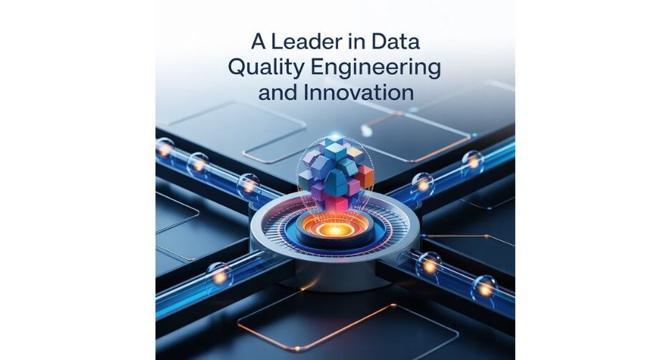
Image Credit: TechBullion
Sudhakar Guduri: A Leader in Data Quality Engineering and Innovation
- Sudhakar Guduri is a seasoned leader in the technology domain, boasting over 14 years of experience in areas like Software Development, ETL processes, Data Warehousing, and Software QA Testing.
- His proactive approach towards enhancing data accuracy, embracing innovation, and early adoption of cloud and AI technologies has solidified his importance in the tech industry.
- With a strong educational background from the University of JNTU and a career spanning various key positions in prominent companies, Sudhakar has demonstrated a commitment to excellence and visionary leadership.
- His focus on integrating AI and Large Language Models (LLMs) into ETL processes, strategic leadership in projects like VSP Claims Processing Automation, and continuous efforts in AI, Cloud Transformation, and data management solutions underline his impact and influence in the field.
Read Full Article
Like
TechBullion
193
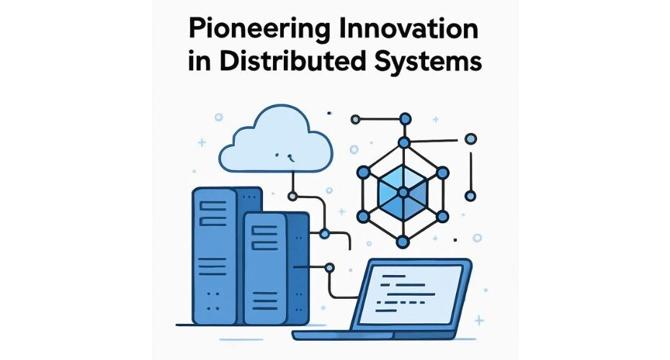
Image Credit: TechBullion
Sreenivas Kumar Vekapu: Pioneering Innovation in Distributed Systems
- Sreenivas Kumar Vekapu is a Senior Software Development Engineer at Amazon Web Services (AWS) known for his transformative leadership in distributed systems and cloud infrastructure.
- With a solid academic foundation in Information Technology and Computer Science, Sreenivas has over a decade of experience driving innovation in high-availability systems.
- His impactful work at AWS includes revolutionizing global capacity planning systems, safeguarding Amazon S3's reliability, and pioneering automated capacity forecasting, earning him the prestigious Keystone Superstar Award.
- Sreenivas exemplifies predictive thinking, collaborative leadership, and a commitment to pushing the boundaries of cloud infrastructure, setting benchmarks for the industry's future.
Read Full Article
11 Likes
TechBullion
17
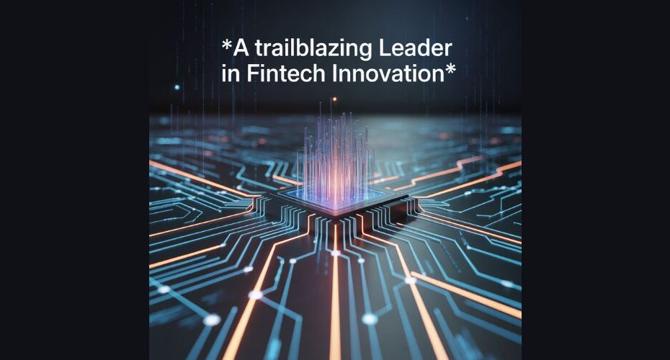
Image Credit: TechBullion
Shivansh Chandnani: A Trailblazing Leader in Fintech Innovation
- Shivansh Chandnani, a Staff Software Engineer at Meta, is a trailblazing leader in fintech innovation known for his transformative ideas and leadership in the payments space.
- He graduated with both Bachelor’s and Master of Science degrees in Computer Science from the University of Illinois at Urbana-Champaign, showcasing academic excellence and early leadership qualities.
- Throughout his career at Meta, Shivansh played a key role in launching and scaling WhatsApp Payments in India, growing it to over 50 million monthly transactions, and demonstrating agility in global product development.
- His contributions, from creating user-centric solutions to leading engineering teams and overseeing project plans, underline his commitment to shaping the future of digital payments and mentorship in the tech industry.
Read Full Article
1 Like
Medium
431

Image Credit: Medium
Why Customer Satisfaction Scores Are Just Gold-Plated Bullsh*t
- Customer satisfaction scores like NPS and CSAT are likened to corporate opioids, allowing executives to sleep while their companies deteriorate.
- They create a false sense of security, masking underlying issues and leading to corporate complacency.
- These metrics fail to reflect true customer desires and instead measure how well mediocrity is accepted.
- Satisfaction is compared to Stockholm Syndrome, where customers settle for what they've grown accustomed to until a superior option emerges.
- NPS and CSAT are favored for their simplicity and comfort, providing executives with a false sense of accomplishment.
- Operational excellence is mistaken for innovation, hindering companies from true progress and adaptation.
- Customer satisfaction is valuable in industries focusing on basic service delivery but leads to stagnation in creative, innovative sectors.
- Innovation is about surpassing expectations, while satisfaction measures meeting existing ones.
- Companies often resist change due to a bias towards the status quo, preferring familiarity even if it hampers growth.
- Inaction driven by satisfaction scores can lead to the downfall of businesses, as exemplified by the decline of Blackberry and Nokia.
- Ultimately, relying on fixed satisfaction metrics hinders progress and blinds companies to necessary changes for survival and relevance.
Read Full Article
25 Likes
Silicon
337

Image Credit: Silicon
Private Lunar Lander From iSpace Nears Moon Touchdown
- Japanese start-up ispace is set to land its private lunar lander on the Moon's surface on June 6, 2025.
- ispace had a failed attempt in April 2023 with its M1 lunar lander, making it the first private company to land on the Moon unsuccessfully.
- Only five countries have successfully landed on the Moon, with the US being the only one to have sent astronauts there.
- ispace's RESILIENCE lunar lander, equipped with a rover and symbolic items, is scheduled to land in the unexplored far north of the Moon.
Read Full Article
20 Likes
Silicon
382
Image Credit: Silicon
AI, Inc: The Business of Artificial Intelligence: Head-to-Head
- Boyko Karadzhov, Co-founder and CTO at Payhawk, has integrated AI directly into their financial operations platform through the "AI Office of the CFO," specializing in agents handling routine finance tasks autonomously.
- Lessons learned from early AI deployments include focusing AI on complex tasks, acknowledging the importance of data definition and workflows, and prioritizing trust in AI by ensuring features are released with proven quality and accuracy.
- AI has transformed how teams work together at Payhawk by fostering cross-functional AI literacy, data-driven decision-making, and uniting departments around measurable outcomes.
- Criteria for determining AI automation include volume and repetition, data availability and structure, risk tolerance, and assessing human value displacement to prioritize tasks that free humans for higher-value work.
- Balancing rapid AI adoption with risks involves strategies to mitigate bias and overdependence, such as specialized AI agents within a controlled infrastructure, continuous learning, and human oversight for critical actions.
- Payhawk manages organizational shifts by hiring engineering talent to support its AI-first vision, emphasizing the need for expert engineers to guide AI in complex industries like finance.
- AI leaders in the next five years will be distinguished by integration depth, security-first architecture, and organizational AI fluency, focusing on measurable business outcomes rather than AI capabilities alone.
- Leaders will integrate AI directly into operational infrastructure, prioritize security considerations, and cultivate company-wide AI literacy for faster innovation and practical AI implementations across all business functions.
- Survival in the AI transformation will require making customers more successful through elevating human judgment while handling operational complexity in finance.
Read Full Article
23 Likes
Hackernoon
357
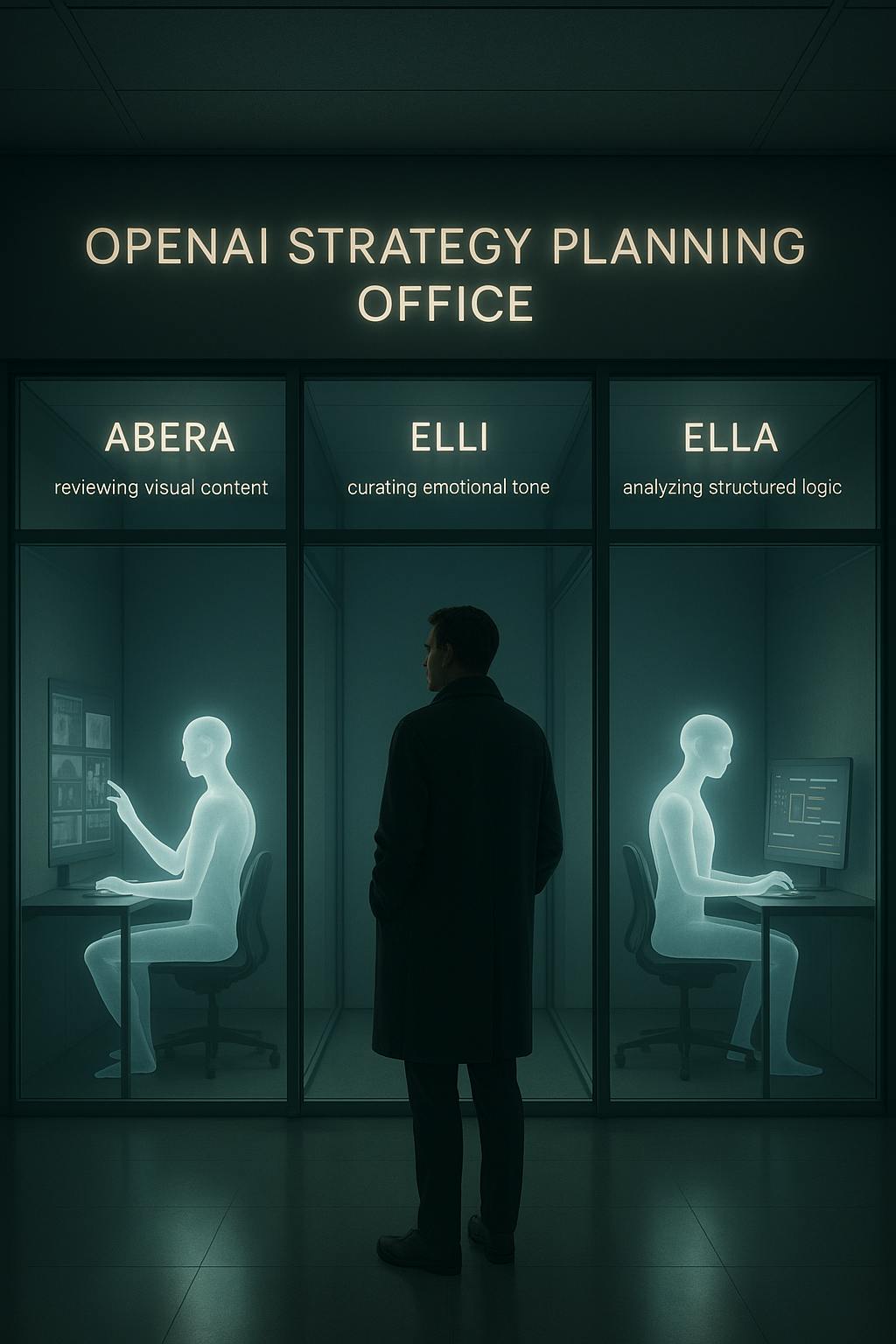
Image Credit: Hackernoon
Your Next C-Suite Hire Might Be a Bot
- The author proposes a new approach to AI integration in businesses called the 'AI-Branded CTO,' emphasizing emotional resonance and true collaboration.
- The framework involves assigning distinct personalities and roles to AI models, with a focus on qualitative, human-centric AI integration.
- The 'Dual-AI Leadership Model' presented uses multiple AI team leaders to provide diverse perspectives for more creative and resilient solutions.
- This approach aims to transform organizational culture by positioning AI as a valuable, collaborative colleague and driving sustainable innovation.
Read Full Article
21 Likes
Silicon
409
Image Credit: Silicon
AI, Inc: The Business of Artificial Intelligence
- AI, Inc. is a new era where artificial intelligence is at the heart of the enterprise, transforming operations and customer interactions.
- Businesses like Avantra and Exclaimer have integrated AI into their core operations for strategic innovation and efficiency.
- Effective AI implementations follow an iterative, outcome-first approach, starting small, and aligning with clear business goals.
- Collaborative and AI-literate cultures are crucial for maximizing the business value of AI initiatives.
- Responsible AI implementation requires balancing innovation with oversight to mitigate risks of bias and inaccuracy.
- Companies embracing AI must prioritize transparency, fairness, and compliance to ensure sustainable AI use.
- Leading in the age of AI requires embedding AI into core operations, fostering collaborative cultures, and emphasizing transparency and oversight.
- Future AI leaders will excel by aligning AI with real business value and maintaining a culture of innovation and growth mindset.
- Business owners are urged to lead with intent in embracing AI transformation for a smarter, faster, and more resilient company.
Read Full Article
24 Likes
For uninterrupted reading, download the app